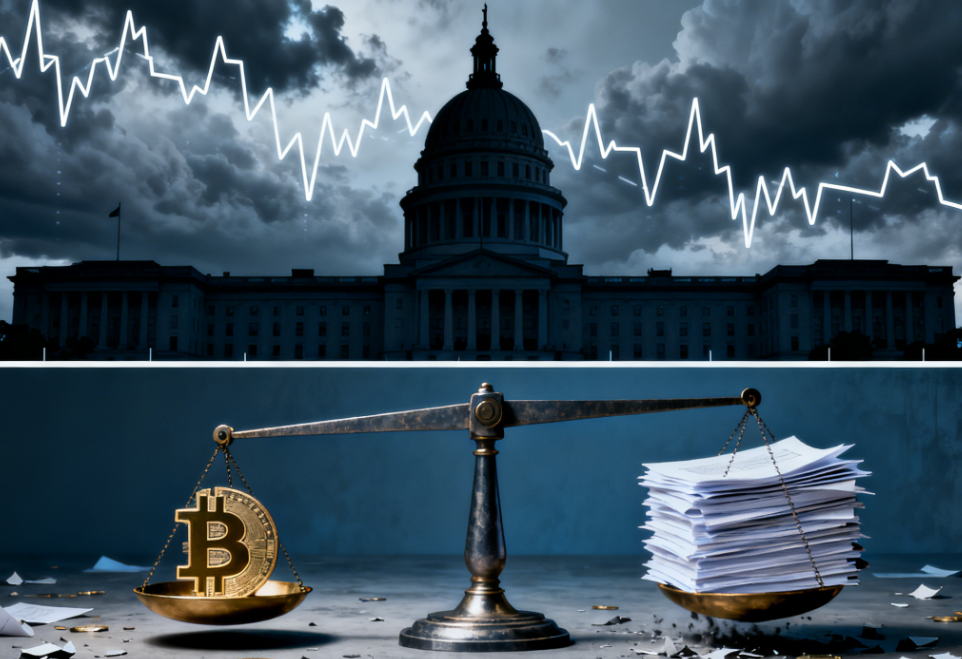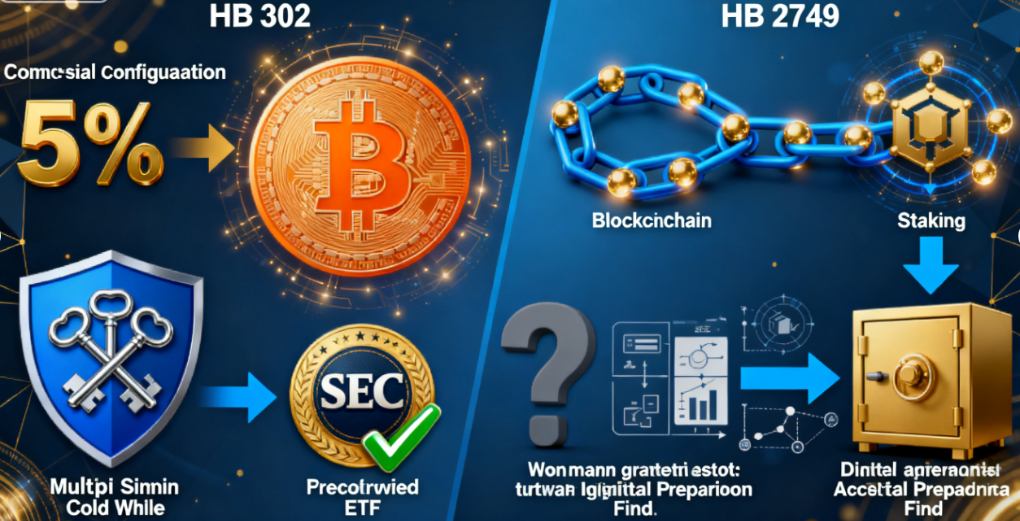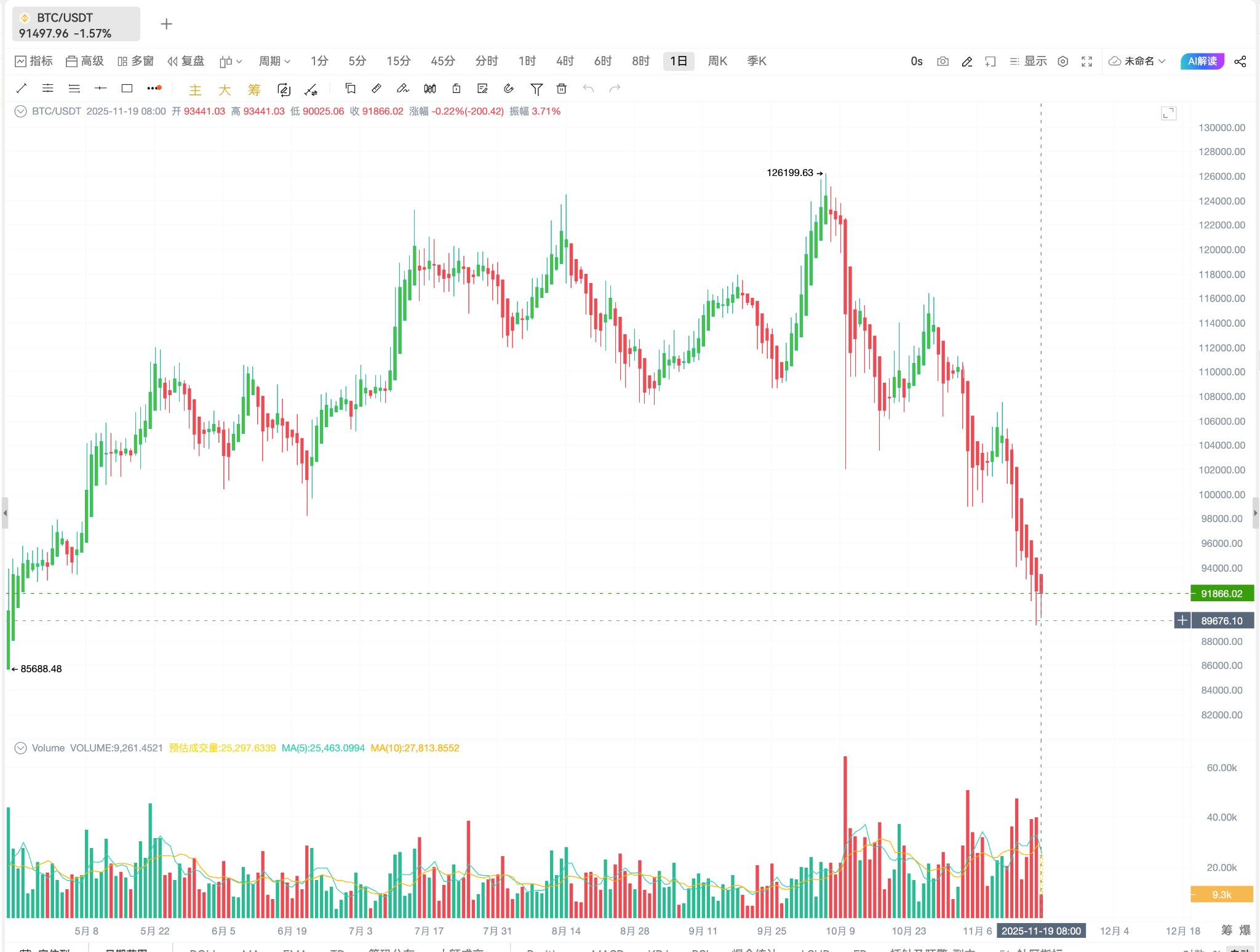In the New Hampshire State House, a bill named HB 302 was signed into law by Governor Kelly Ayotte on May 6, 2025, marking the moment the state became the first in the nation to include Bitcoin in its financial reserves.
“We are making history,” commented the bill's drafter, Republican Representative Keith Ammon. The HB 302 bill allows New Hampshire to invest up to 5% of its public funds in Bitcoin.
This state-led crypto experiment has quietly begun. A total of 57 crypto-related bills have been passed across 27 states and Washington D.C.

1. State-Level Bitcoin Reserves: From New Hampshire to Arizona
The HB 302 bill from New Hampshire represents the most conservative and comprehensive approach to state-level Bitcoin reserves.
● The bill allows the state government to allocate up to 5% of its financial resources to Bitcoin, requiring that the investment target be a cryptocurrency with a market capitalization exceeding $500 billion for a continuous year, a condition currently met only by Bitcoin.
● The bill sets up triple safeguards for asset custody: state treasury self-managed multi-signature cold wallets, custody by licensed special purpose deposit institutions, or holding through SEC-approved Bitcoin ETFs.
● Arizona, on the other hand, has taken a completely different path. The HB 2749 bill signed on May 8, 2025, creatively allows the state government to transfer unclaimed crypto assets, after a three-year search period, into a newly established "Bitcoin and Digital Asset Reserve Fund."
● Unlike New Hampshire's proactive allocation, the Arizona plan does not utilize any tax dollars but allows assets to participate in on-chain staking to earn returns, making the state treasury an active player on the blockchain for the first time.

2. Diversification of State Crypto Policies: Wyoming and Illinois' Exploration
● Wyoming became the first state in the U.S. to enact the "Decentralized Autonomous Nonprofit Organization Act" (DUNA) in March 2024. This law grants DAOs legal entity status, allowing them to contract with third parties, participate in litigation, pay taxes, and protects members from legal liability for the actions of others.
The influence of DUNA quickly became apparent. In 2025, the Uniswap DAO overwhelmingly passed a resolution adopting the DUNA registered in Wyoming as the legal framework for its governance protocol.
● Illinois has taken another innovative route. In August 2025, Governor Pritzker signed the "Digital Assets and Consumer Protection Act" (DACPA).
This law recognizes that different tokens carry different risks, explicitly excluding entertainment tokens, collectible tokens, and other non-speculative tokens from financial regulation.
3. Resonance Between Federal and State: Regulatory Framework Gradually Clarifying
While states innovate in crypto policy, federal legislation is also accelerating.
● In July 2025, President Trump signed the "U.S. Stablecoin Guidance and National Innovation Act" (referred to as the GENIUS Act), and the House passed the "Digital Asset Market Clarity Act" (referred to as the CLARITY Act) with overwhelming bipartisan support.
● Federal regulatory agencies are also sending positive signals. The Office of the Comptroller of the Currency (OCC) issued Interpretive Letter 1183, reaffirming that banks can provide crypto asset custody services, participate in distributed ledger node validation, and engage in specific stablecoin activities.
The OCC clearly stated: “We will no longer allow banks to discriminate against legitimate cryptocurrency activities.” This policy shift could enable over 50 million Americans holding cryptocurrencies to access better banking services.
4. Competition Among Regional Financial Centers: North Carolina's Stablecoin Ambitions
● North Carolina, particularly Charlotte, is leveraging its position as the second-largest banking center in the U.S. to attract crypto companies. Shortly after the passage of the GENIUS Act, Tether announced it would establish its U.S. headquarters in Charlotte.
● The company plans to launch its first U.S. regulated stablecoin by December 2025, aiming to reach 100 million American users. “North Carolina has established a regulatory trust system,” noted industry representative Dan Spuler, “this unique environment allows digital innovators to confidently deploy new products.”

5. States as Innovation Testbeds
U.S. states are acting as policy laboratories, exploring various applications of blockchain technology.
● The California Blockchain Working Group is a model for state-level crypto task forces. Composed of 20 experts from technology, business, government, law, and information security, the group submitted a report to the state legislature after two years of research, promoting several practical pilot projects, including the use of blockchain by the state Department of Motor Vehicles to digitize vehicle ownership, reducing fraud and increasing efficiency.
● Utah has passed legislation requiring the state technology services department to pilot blockchain-based public project credentials. Other application scenarios include providing blockchain-based mobile voting for overseas voters and publishing state government expenditure records on a public blockchain to enhance transparency.
● North Carolina has attracted stablecoin giants like Tether, while Wyoming has provided a legal home for DAOs through the DUNA Act. These policy experiments are not only reshaping the landscape of digital assets in the U.S. but may also compel the federal level to form a more comprehensive regulatory framework.
“When New Hampshire proves this path is viable, other states just need to follow in its footsteps.”
Join our community to discuss and grow stronger together!
Official Telegram community: https://t.me/aicoincn
AiCoin Chinese Twitter: https://x.com/AiCoinzh
OKX benefits group: https://aicoin.com/link/chat?cid=l61eM4owQ
Binance benefits group: https://aicoin.com/link/chat?cid=ynr7d1P6Z
免责声明:本文章仅代表作者个人观点,不代表本平台的立场和观点。本文章仅供信息分享,不构成对任何人的任何投资建议。用户与作者之间的任何争议,与本平台无关。如网页中刊载的文章或图片涉及侵权,请提供相关的权利证明和身份证明发送邮件到support@aicoin.com,本平台相关工作人员将会进行核查。




